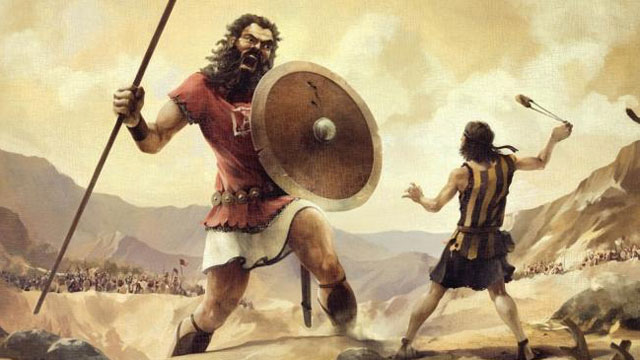4 Reasons Why We Relate To Fictional Characters
4 Reasons Why We Relate To Fictional Characters
I personally love fiction—all forms of it, from movies to books to television. I enjoy exploring the fictional worlds and especially getting to know the characters that inhabit those worlds. Growing up, it was always something I could easily get lost in, and it still is now. I know there are many people that feel this way as well. We become attached to these characters, defensive of them, and can be distraught if they are hurt or worst of all killed. We root for them and become personally invested in their romantic relationships. But why do we relate to fictional characters so much? Here are four reasons:
1. Insight
Fictional characters can give us insight into the lives of people in the real world. In Blakey Vermeule’s book, Why Do We Care About Literary Characters?, she writes, “People need to know what people are like.” We often wonder about others and what they are thinking, and fiction give us “[i]nformation that would be too costly, dangerous, and difficult to extract from the world on our own.” We are so involved in their worlds, their day-to-day lives, their struggles, and the emotions they feel. We are right there with them when no one else is, and so we feel especially connected, even more so when we know what they are thinking. This is something that could never be achieved in real life (Lodder, 2013).

2. The Writer’s ability/style
The writer’s abilities can also play a role in our attachment to characters. They create interesting and likable characters. This is something I can attest to; when reading The Catcher in the Rye, it really felt like I was there with Holden walking the streets of NYC in the 1940’s. Vermeule states this as well saying, “Writers have developed ‘tools’ to stimulate our mind, grab our attention and keep us interested” (Lodder, 2013).
Music is another element used to evoke emotion. In movies and television, there is always music to fit every type of scene. “Music can ‘entrain’ our body, causing our heart rate to synchronize with the beat, affecting our mood through pitch and melody” (Hillman, 2014). The Star Wars saga is best known for using musical motifs for characters as well as using music to deepen the emotions portrayed on screen, which draws us further into the story and what the characters are going through.

3. Empathy
Empathy allows us to feel what the characters are feeling. Mirror neurons in the brain cause us to feel happy, sad, or angry when we see someone else experiencing these emotions (Hillman, 2014). This allows and even closer connection to the character. We experience changes with them, whether they be good or bad. In Harry Potter, you are right there with him in some of his darkest moments, which allowed the reader to go through those same emotions and understand Harry’s motivations and fears. Characters can become like our friends or even an extension of ourselves. According to Howard Sklar, a post-doctoral researcher in the English Philology Unit at the University of Helsinki, “[a]s anyone who has watched an engaging film or read an engaging novel knows, we invest ourselves deeply in the experience of living with those characters. We tend to respond to them as though they were real individuals” (Nuwer, 2013).

4. Human need
We as people need to relate our lives to other people. And this means relating our lives to those of others. This can also be true when relating to fictional characters since fiction and storytelling are so embedded into the culture of humanity.
When a person feels marginalized or like an outcast, they may tend to gravitate toward characters who share those same qualities. This may act as a form of therapy, and comfort for the person (Hillman, 2014). Human beings have been telling stories for thousands of years, so perhaps it is human nature to relate to characters and the stories in which they exist (Delistraty, 2014). We may also try to view our lives as a similar narrative, wanting to be part of a larger story. We hope in our own stories; despite our own trials, we will overcome and have our own version of a happy ending. Because like many stories tell us, if it’s not happy, it’s not the end.

Edited by: Kim Rooney
Works Cited
Delistraty, C. C. (2014 November 2) The Psychological Comforts of Storytelling Retrieved from http://www.theatlantic.com/health/archive/2014/11/the-psychological-comforts-of-storytelling/381964/
Hillman, K. (2014 November 13) Why Do We Identify With Fictional Character Retrieved from http://www.psychology24.org/why-do-we-identify-with-fictional-characters/
Lodder, D. (2013 August 7) Why We Care About Fictional Characters And Why Cote de Pablo’s Departure Hurts Retrieved from http://www.huffingtonpost.com/dianne-lodder/why-we-care-about-fiction_b_3721738.html
Nuwer, R. (2013 July 15) The Psychology of Character Bonding: Why We Feel a Real Connection to Actors Retrieved from http://www.wheretowatch.com/2013/07/the-psychology-of-character-bonding-why-we-feel-a-real-connection-to-actors
Image urls
http://www.wzip88.com/wp-content/uploads/2015/09/923d37bf-5350-454f-b502-5126843df00e.jpg
http://static.srcdn.com/slir/w570-h300-q90-c570:300/wp-content/uploads/star-wars-spinoffs-kasdan-kinberg.jpg
https://media2.giphy.com/media/12xSrwKxHxB3BS/200_s.gif
http://s3.static-footeo.com/uploads/excelsior-cuvry/news/david-et-goliath-une-vision-de-la-fin-des-temps__ncb89v.png




Responses